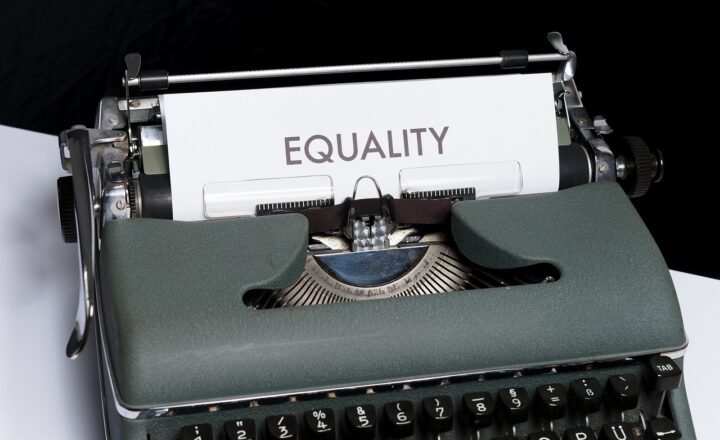The Unseen Impact of the Internet on Global Politics: A Look at the Last Decade
November 18, 2024

The internet has evolved from a mere information-sharing platform to a powerful tool that shapes political landscapes around the globe. Over the last decade, its transformative influence on various political movements has been both profound and multifaceted, reshaping everything from grassroots activism to governmental transparency.
1. The Rise of Social Media as a Political Tool
Social media platforms have emerged as critical instruments in modern politics, allowing individuals and organizations to share information widely and mobilize support rapidly. Platforms like Twitter, Facebook, and Instagram have changed how politicians communicate with the public, shifting the balance of power in political discourse.
The Arab Spring, which began in late 2010, serves as a clear example of social media’s power to galvanize movements. Activists utilized these platforms to organize protests and share real-time updates about governmental actions. The hashtag #Jan25 became emblematic of the anti-government sentiment in Egypt, showcasing how social media can act as a catalyst for change when traditional media is censored.
In the U.S., the 2016 presidential election highlighted social media’s role in shaping public opinion. Political campaigns harnessed platforms for targeted ads, misinformation, and grassroots engagement. The proliferation of memes and viral content demonstrated new ways to reach voters, particularly younger demographics who predominantly use these digital platforms as their primary news source.
2. The Challenge of Misinformation
While the internet has provided a platform for the democratization of information, it has also birthed challenges, notably in the area of misinformation. The rapid spread of false information can have significant impacts on elections, public policy, and trust in democratic institutions.
The 2016 U.S. election witnessed an explosion of fake news that circulated unchecked across various digital platforms, influencing public perception and voter behavior. Russian interference through social media campaigns demonstrated the potential for both foreign and domestic entities to manipulate information for political gain.
According to a report by the Pew Research Center, approximately 64% of Americans believe fabricated news stories cause a great deal of confusion. This blurring of truth and fiction complicates the landscape for voters and challenges the ability of citizens to make informed choices based on accurate and reliable information.
3. Digital Activism and Grassroots Movements
The last decade witnessed a surge in digital activism spurred by the power of the internet. Movements such as #MeToo, Black Lives Matter, and climate activism led by Greta Thunberg exemplify how digital platforms can amplify voices and mobilize action.
The #MeToo movement, which gained momentum in 2017, utilized social media to share personal stories of sexual harassment and assault, breaking down barriers of silence. This resulted in widespread public discourse and legislative changes in numerous countries regarding workplace policies and legal protections.
Similarly, Black Lives Matter has harnessed the internet to advocate for racial justice, organizing protests and campaigns that have reshaped conversations around police violence and systemic racism globally. Hashtags served as unifying calls to action, gathering support both locally and internationally.
Digital activism has made it easier for marginalized voices to find solidarity, encouraging global participation in local issues and enhancing interconnectivity among activists worldwide.
4. Government Surveillance and Internet Privacy
As much as the internet has democratized information, it has also heightened concerns around government surveillance and privacy. With the collection of user data by governments and corporations, citizens often find themselves in precarious situations where privacy is compromised.
Revelations by whistleblowers such as Edward Snowden in 2013 about the NSA’s extensive surveilling programs raised awareness and sparked a global debate on privacy rights and civil liberties. Many countries have since grappled with balancing security concerns against individual rights.
As a result, movements advocating for internet privacy and digital rights have gained traction, with organizations pushing for legislation to protect citizens’ online activities from unwarranted surveillance.
5. Conclusion: The Internet as a Double-Edged Sword
The internet plays a dual role in the political landscape: it is a powerful tool for empowerment, enabling individuals and groups to express and organize, while simultaneously posing threats through misinformation and surveillance. The last decade has underscored the necessity of navigating this complex digital world with a critical eye, ensuring that as citizens engage with these platforms, they do so with an understanding of both their capabilities and limitations.
As we move forward, addressing the challenges of misinformation, protecting privacy, and harnessing the positive potential of digital activism will be crucial. By doing so, we can ensure that the internet remains a force for good in shaping global politics, fostering understanding, and promoting democratic ideals across the globe.
In summary, while the internet has undeniably changed the political game in the last decade, it now lies in our hands to use this tool wisely and effectively, ensuring that its influence on politics leads to positive change and greater civic engagement across the world.








